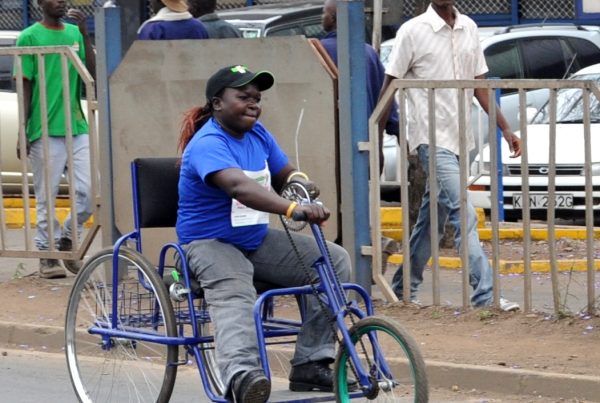
BALANCING PEOPLE AND PLANET TO ELIMINATE RISK
The People’s Climate Vote revealed that 64% of people in 50 countries polled believe the world is facing a climate emergency. While contributing little to the causes of climate change, people already living in crisis often suffer the most severe impacts of climate change, causing loss of livelihoods, damage to vital infrastructure and services, forced migration, disease outbreaks, food scarcity and instability in urban areas. Climate-driven environmental degradation and the increased fragility of natural systems can also impact social systems and political stability, including through the higher incidence of low- and high-intensity resource-based conflicts, forced migration and displacement, and degradation of climate -sensitive livelihoods.
Building on UNDP’s strong climate portfolio on the ground, including support to governments to develop climate plans (NDCs) through the Climate Promise, UNDP is prioritising support to governments in crisis contexts to integrate climate security, disaster risk reduction, and other multidimensional risk considerations into national development and climate plans, as well as to develop robust preparedness strategies designed to minimise the impact of climate change and build more resilient societies.
UNDP is also working to reduce the world’s reliance on fossil fuels by identifying and implementing innovative ways to use green energy. This has particular relevance in crisis contexts, where access to grid power is low or unreliable. Green energy has the potential to bring power to people affordably and reliably.
Listen to our podcast series!
Development through a different lens: Conversations about risk and resilience
This Podcast explores the nexus between climate change, disasters, and conflict, focusing on the African and global context.
The impacts and severity of climate change affect many regions of the world severely, but the effect is particularly felt in parts of the African continent. Many countries and areas are already highly vulnerable to disasters and the impacts of climate change, but some face additional security issues and conflicts.
For this Podcast, you can listen to experts on the Sahel region and some of UNDP’s practitioners from the global and country-level, providing insight into past and ongoing experiences and work in complex situations where “climate, disaster and conflict” interact.
We hope this content will add something to the critical discussion on an increasingly complex risk landscape.
Development through a different lens: A conversation with Chitra Nagarajan
For this Podcast, we interviewed Chitra NAGARAJAN. She is a journalist and writer who writes on climate change, conflict, climate security, feminism, foreign policy, migration and many other topics.
During this interview, Chitra clarifies her definition of climate security and highlights her experience in this field in the Sahel region. She talks about the importance of the climate-security conversation and what is missing from the current discussion. She also pays particular attention to the different effects of the climate-security nexus on the more vulnerable parts of the population, especially women and girls. For her final remarks, Chitra gives us her views on what communities affected by the climate, disaster and conflict nexus expect from their governments and the UN to help prevent and manage these interconnected risks.
Development through a different lens: A conversation with Ronald Jackson
For this Podcast, we interviewed Ronald Jackson. He is the Head of Disaster Risk Reduction and Recovery for Building Resilience Team in UNDP’s Crisis Bureau/Global Policy Network and based in Geneva since 2020. He has over 20 years of experience in Disaster Risk Reduction and Management within the Caribbean Region.
During this interview, Ronald talks about his experiences on the link between climate, disaster, and conflict/fragility risk, especially from a Caribbean perspective. He provides resilience-building examples and explains the connection between climate security and disaster risk reduction agendas. To conclude the interview, Ronald provides an inside into UNDP’s approach to risk-informed development and highlights a few examples of UNDP’s work in this space.




